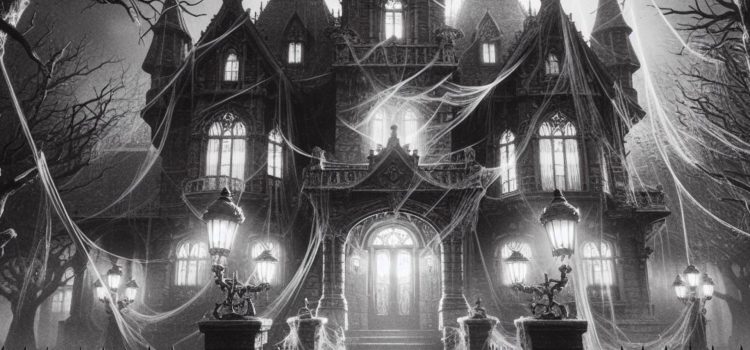
What are common themes in the horror genre? How are Lovecraftian themes portrayed in modern media?
In an episode of The Broski Report, Brittany Broski delves into the fascinating realms of fear and the unknown through various artistic lenses. She ties in her own philosophical explorations of these themes by examining H.P. Lovecraft’s influence and the iconic novel Dracula.
Discover more about the complexities of horror genre themes.
The Artistic Legacy and Complexities of H.P. Lovecraft
Brittany Broski tackles Lovecraftian horror as a horror genre theme, while also acknowledging H.P. Lovecraft’s troubling personal ideologies. She openly condemns his racism and homophobia but separates her appreciation for his cultural and artistic impact.
Lovecraftian Themes in Modern Media
The discussion ventures into Lovecraft’s existential themes, particularly the idea that human victories against vast cosmic entities are but illusions. Broski references movies like Bird Box and A Quiet Place, which capitalize on the horror of the unseen, and how they relate to Lovecraftian horror, reaffirming our minuscule presence in the cosmos.
She ponders our place in the universe through insights from these modern interpretations of classic horror.
Finding Simplicity Amidst Existential Questions
Amidst a philosophical exploration of cosmic horror, Broski shares her preference for appreciating life’s simple pleasures over ruminating on deep existential queries.
Her personal philosophy emphasizes embracing life’s experiences rather than decrypting its unanswerable questions.
H.P. Lovecraft’s Cultural Impact
H.P. Lovecraft, a prominent figure in the horror genre during the early 20th century, is known for creating Lovecraftian horror. This subgenre delves into themes of cosmic entities, existential dread, and humanity’s insignificance in the face of unfathomable forces. Lovecraft’s works have left a lasting artistic legacy that continues to influence popular culture today.
However, it is important to confront problematic aspects of influential figures while appreciating their cultural impact. Lovecraft’s personal ideologies, including racism and homophobia, have been widely criticized in recent years. This raises questions about how we navigate the complexities of separating an artist’s work from their beliefs.
Lovecraftian horror explores the illusion of human victories against cosmic forces by emphasizing humanity’s vulnerability and insignificance in a vast universe filled with unknown horrors. It invites us to confront existential questions about our place in the world and grapple with our fear of what lies beyond our understanding.
Reflections on Extended Life and Immortality
Drawing from literary inspiration, Broski explores the complex themes of life and immortality, weaving them into a broader conversation about human experiences.
Renfield and the Eternal Life Conundrum
She shares her empathetic take on characters like Renfield from Dracula, whose struggle for eternal life opens a window into deeper philosophical inquiries. Broski expresses her preference for Bela Lugosi’s portrayal of Dracula over Gary Oldman’s and discusses the real-life parallels brought by Renfield syndrome.
Citing the vampiric compulsions of notorious murderers like Peter Kürten and Richard Trenton Chase, she bridges the gap between fiction and reality.
Crafting an Animated “Dracula” With A-list Actors
In a lighter vein, Broski dreams up an animated Dracula film, envisioning casting A-list actors such as Robert Downey Jr. and Chris Evans, with herself also taking part. She imagines an animation style similar to that of Shrek humorously picturing this modern take on the classic tale.
Discussions on Dracula
In Bram Stoker’s iconic novel Dracula, the character Renfield serves as a compelling example of the pursuit of eternal life. Renfield, initially a sane and rational man, becomes enthralled by Count Dracula’s promise of immortality and willingly becomes his servant. This exploration of eternal life raises profound philosophical questions about the nature of existence and the lengths individuals are willing to go to achieve it. The concept of eternal life has long fascinated humanity, with various interpretations found in literature and mythology throughout history.
Renfield’s story also intersects with real-life phenomena such as Renfield syndrome, a clinical condition characterized by a compulsion to drink blood often associated with vampirism. This connection between fiction and reality highlights how literature can reflect and influence human experiences. Furthermore, popular film adaptations have further solidified Dracula’s place in popular culture, with notable portrayals by actors such as Bela Lugosi in the 1931 film adaptation and Gary Oldman in the 1992 film adaptation.
Beyond Dracula, exploring other literary characters or works that delve into themes of eternal life can provide additional insights into human desires for immortality. Analyzing different portrayals of vampires in popular culture allows for an examination of how these creatures have evolved over time, and their impact on society’s perception of immortality. Additionally, delving into psychological aspects like Renfield syndrome offers an opportunity to explore representations of mental disorders in literature and film.
The pursuit of eternal life raises ethical considerations regarding its desirability and potential consequences for individuals and society at large. It also invites discussions about religion and spirituality since concepts like heaven or reincarnation often intersect with ideas surrounding immortality.






